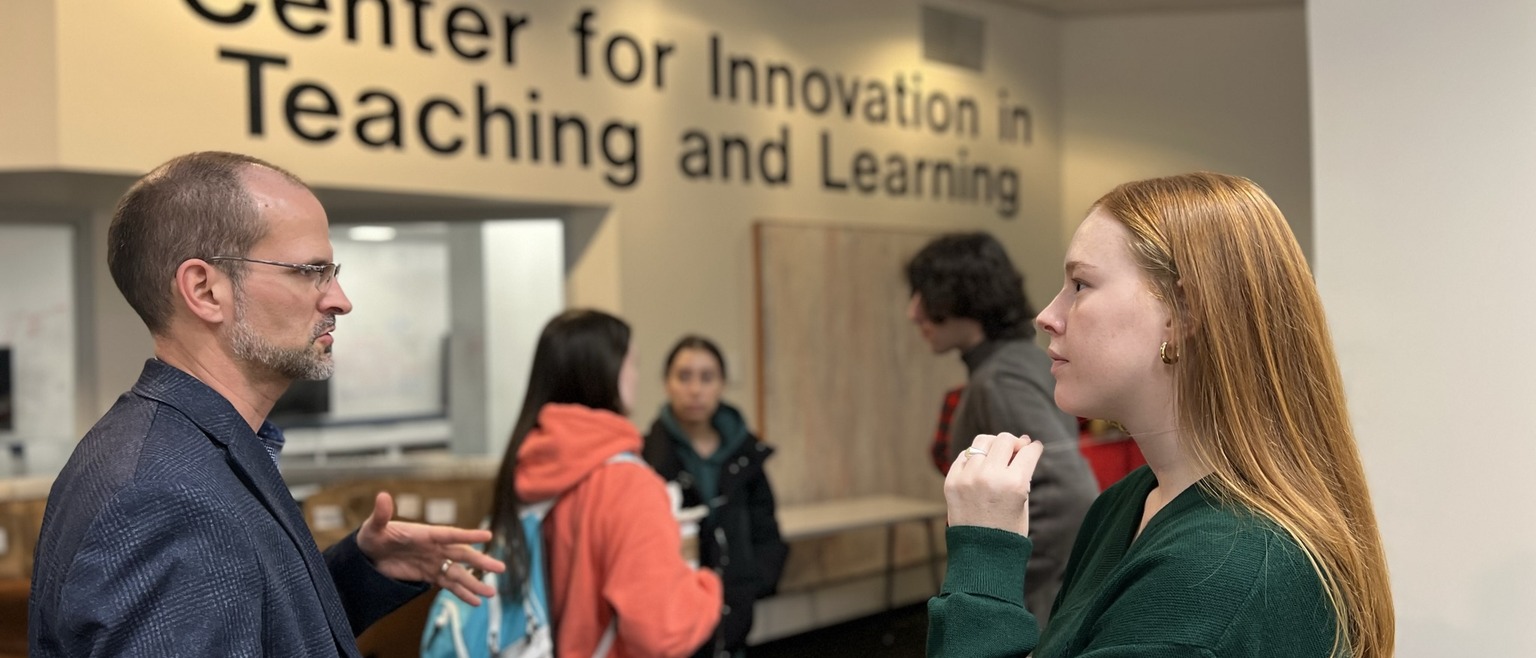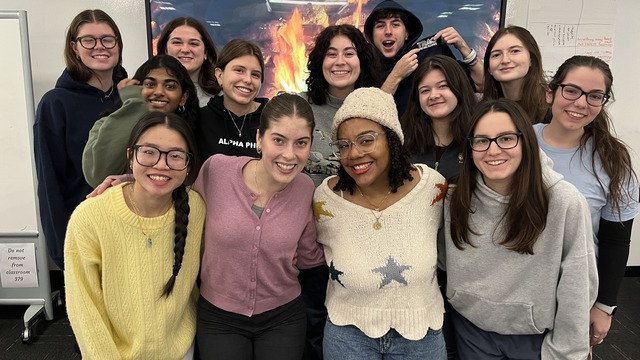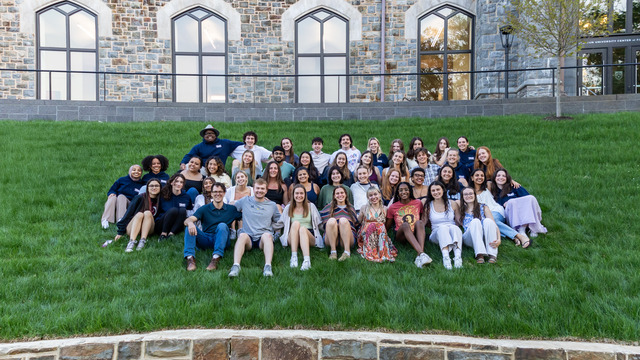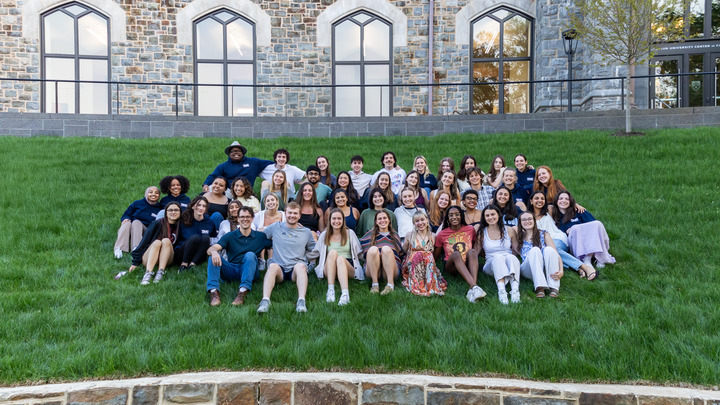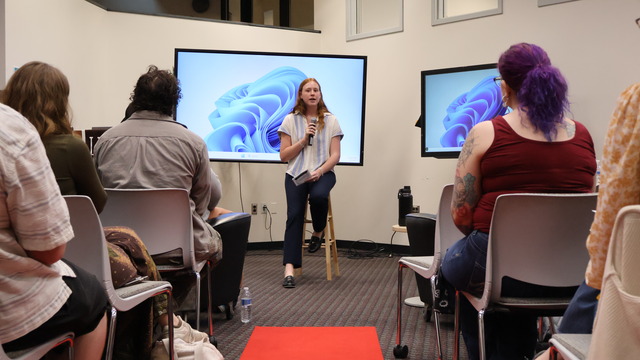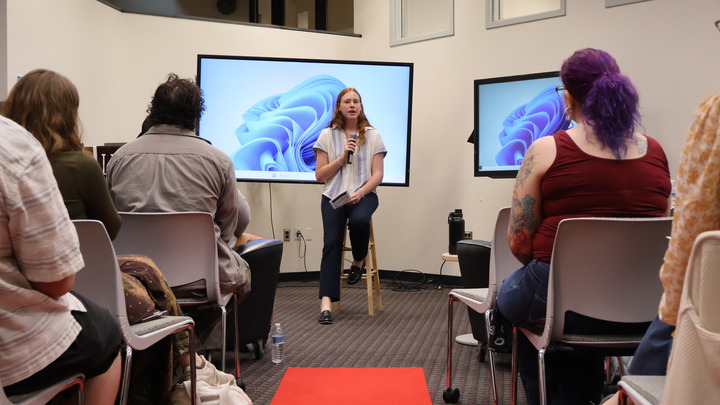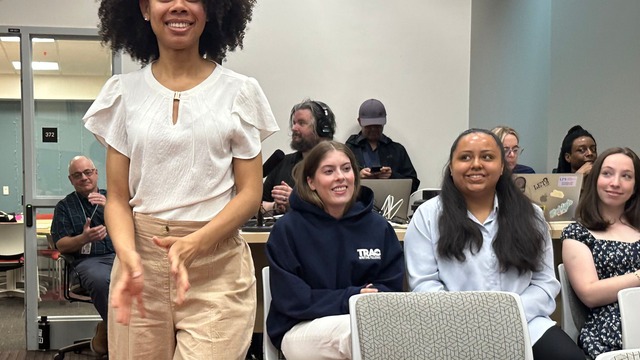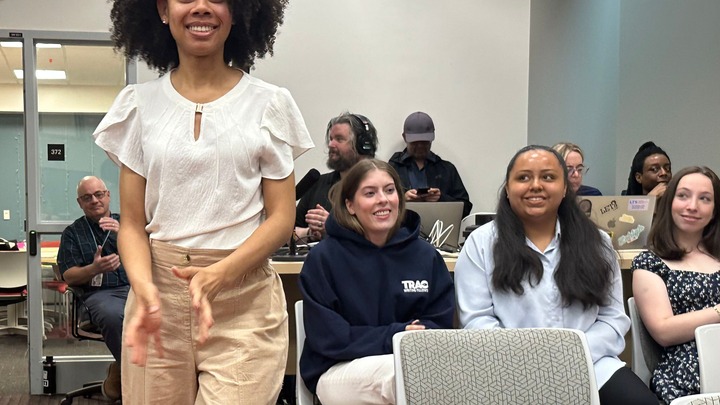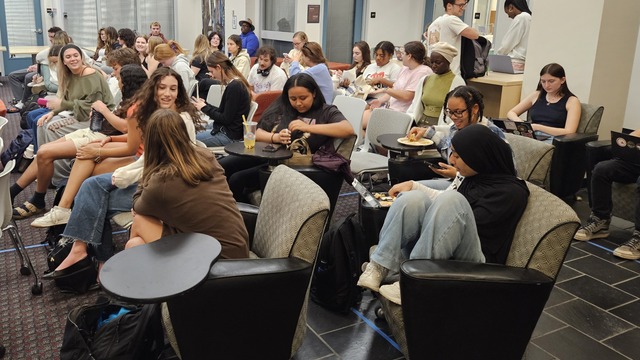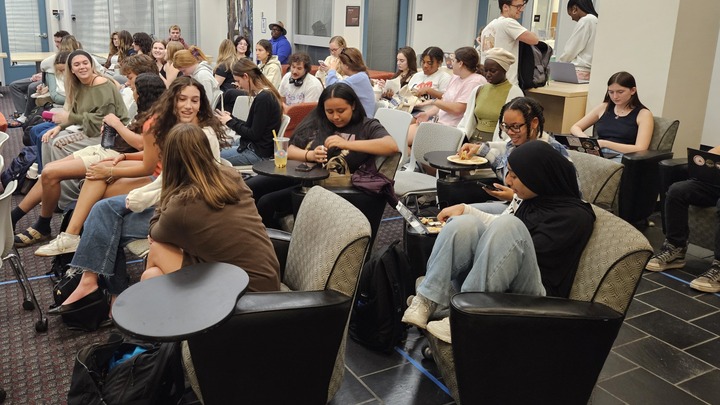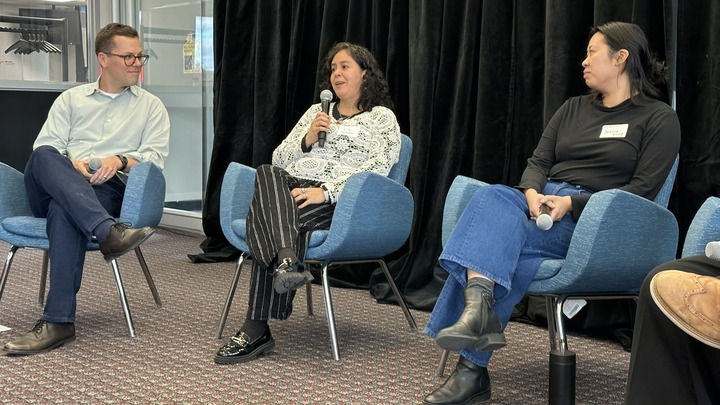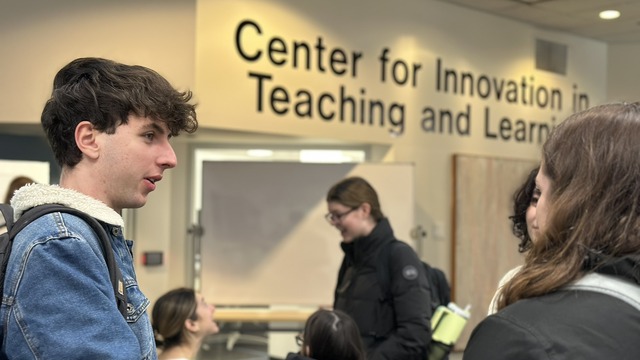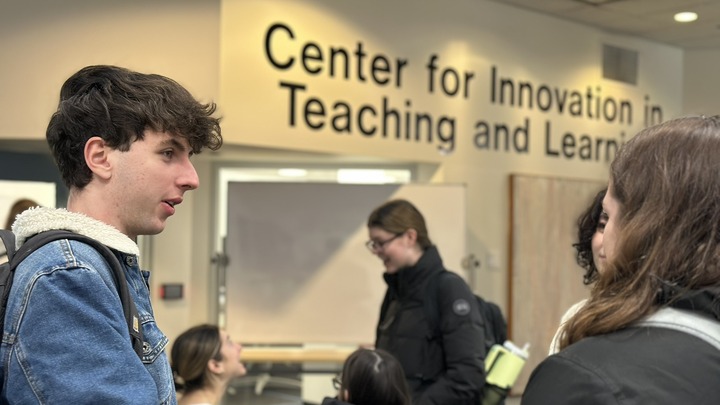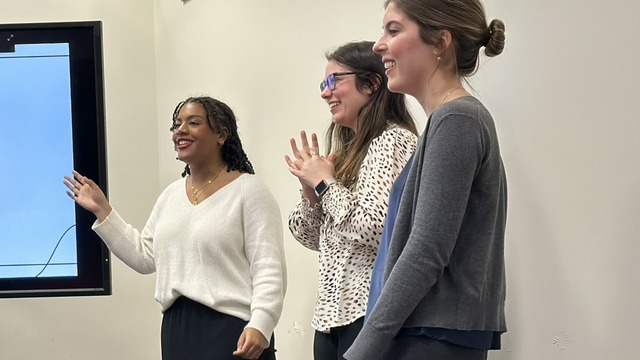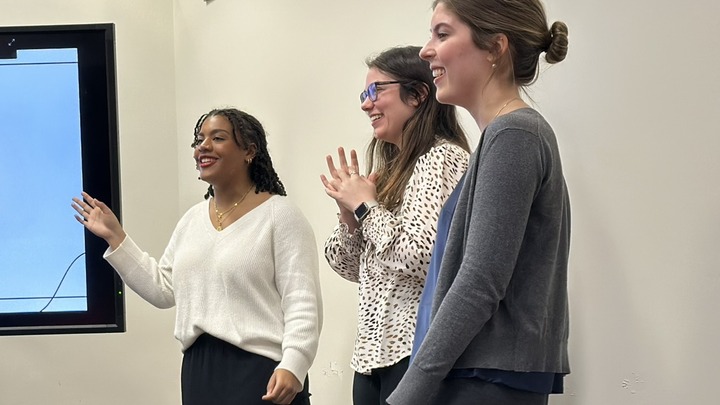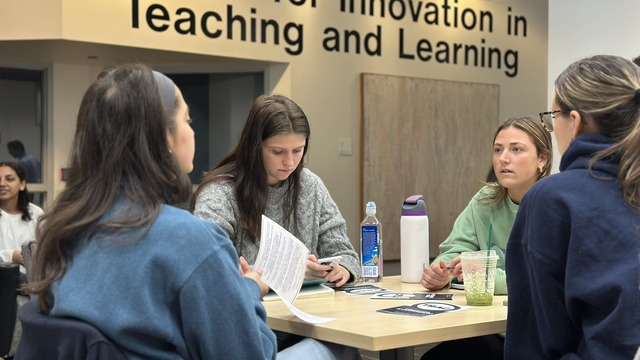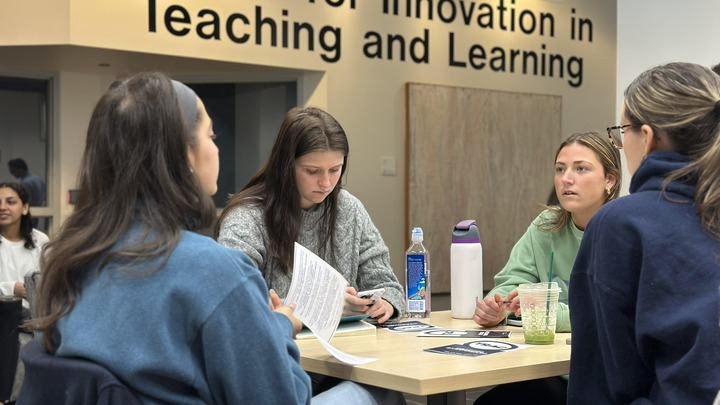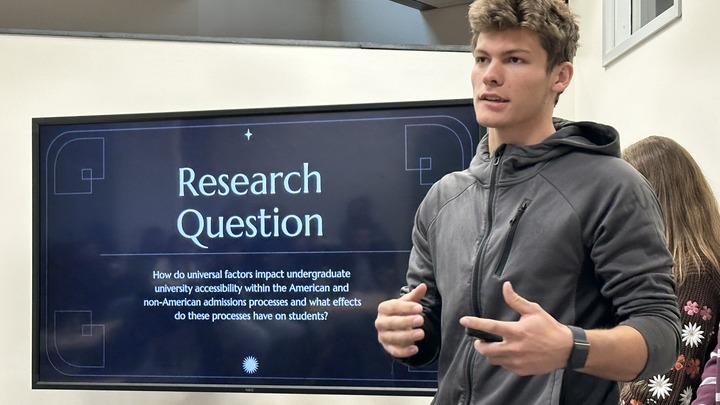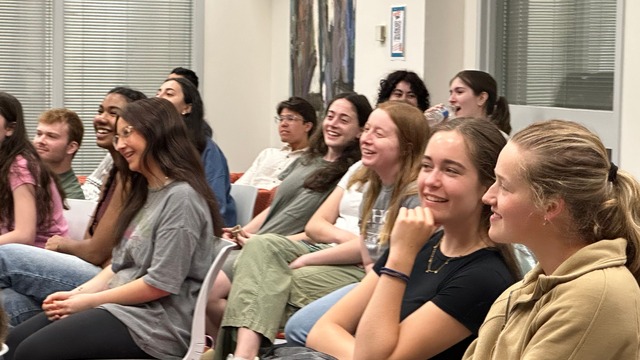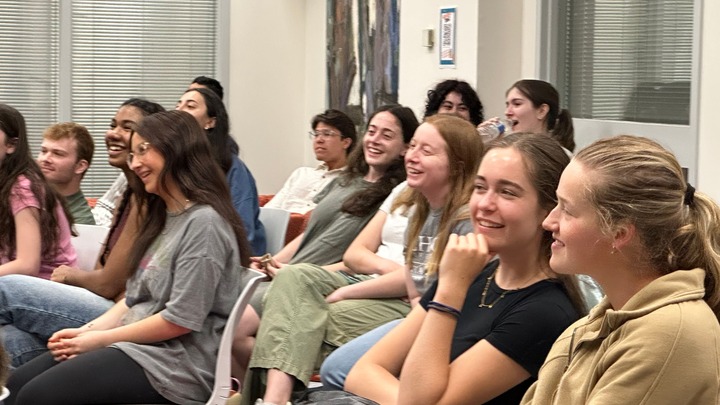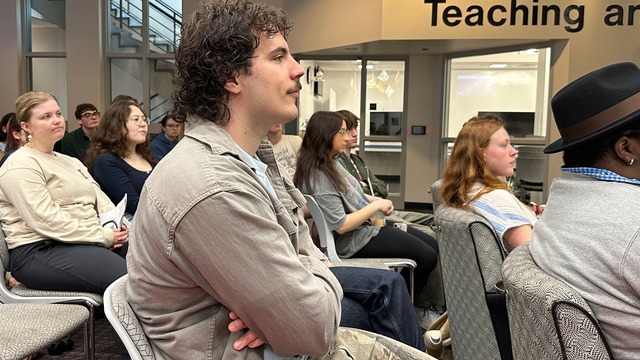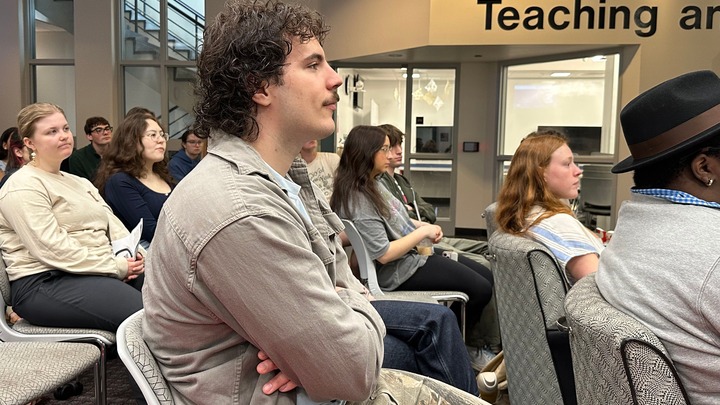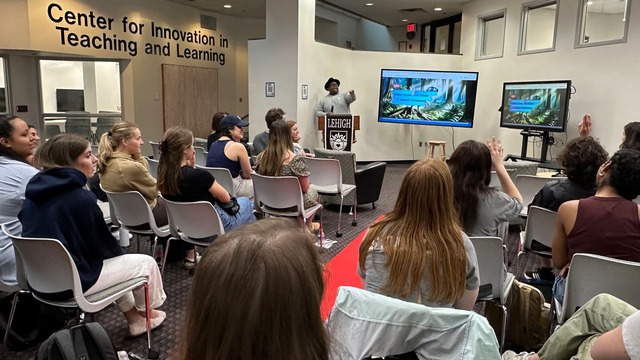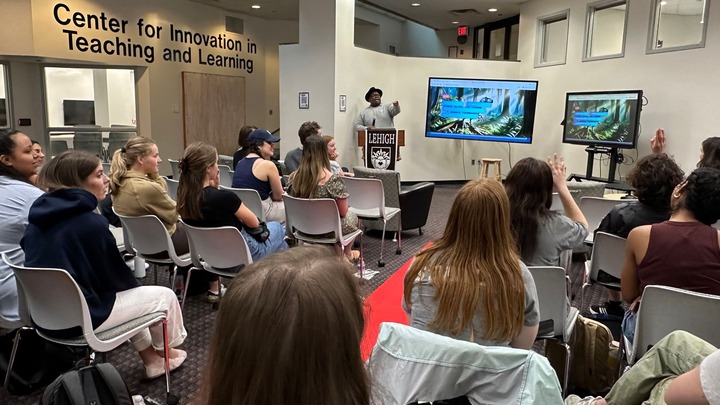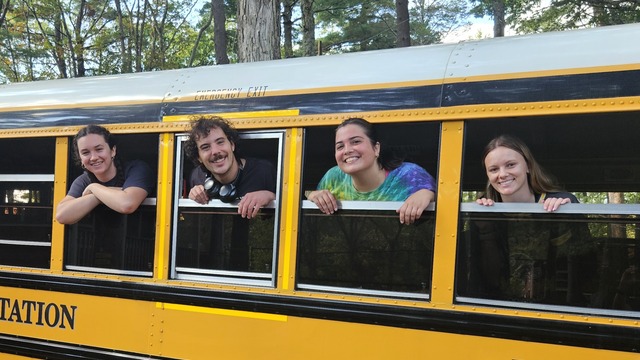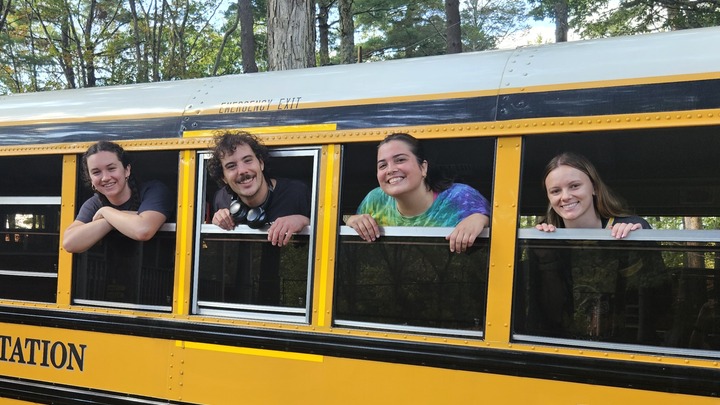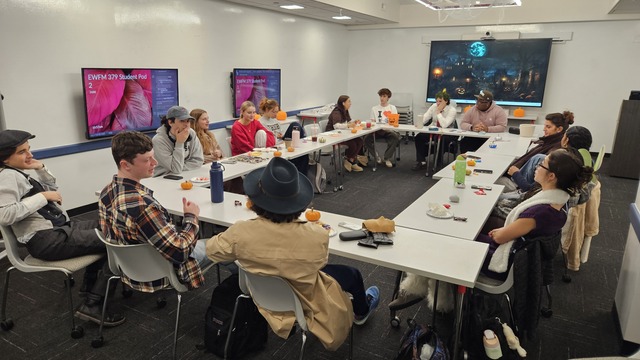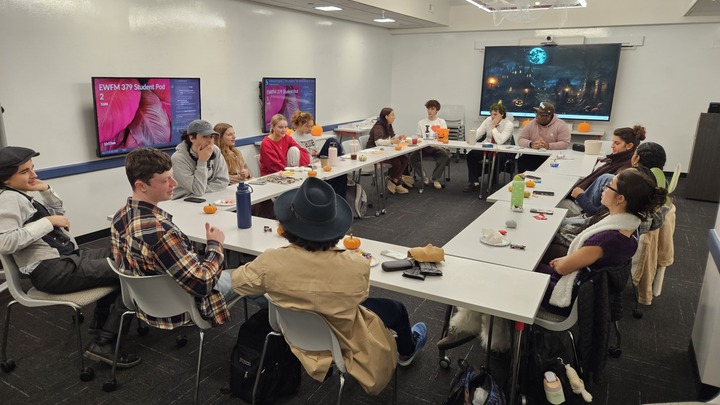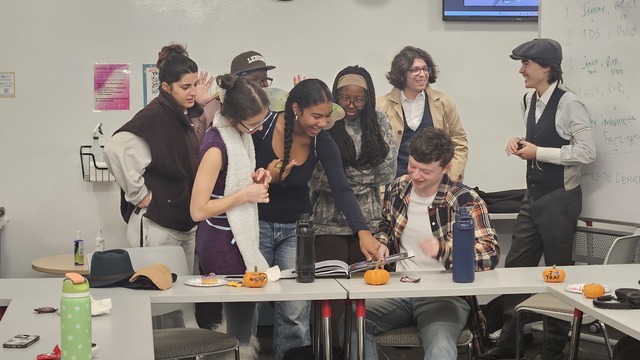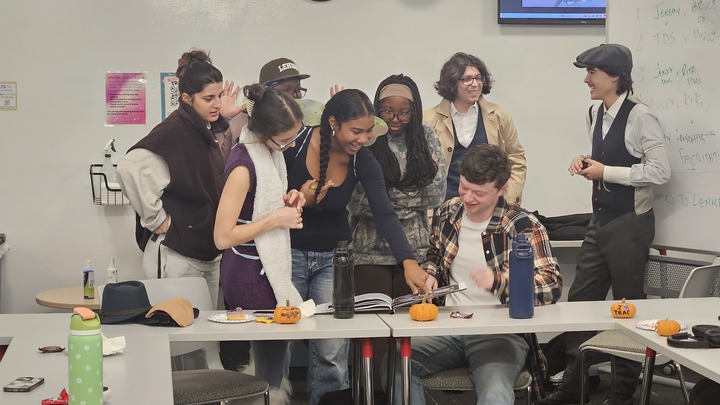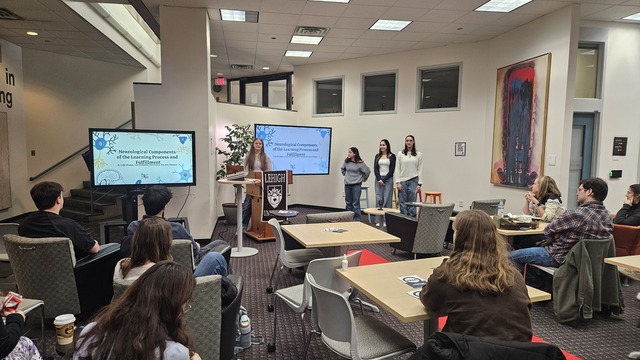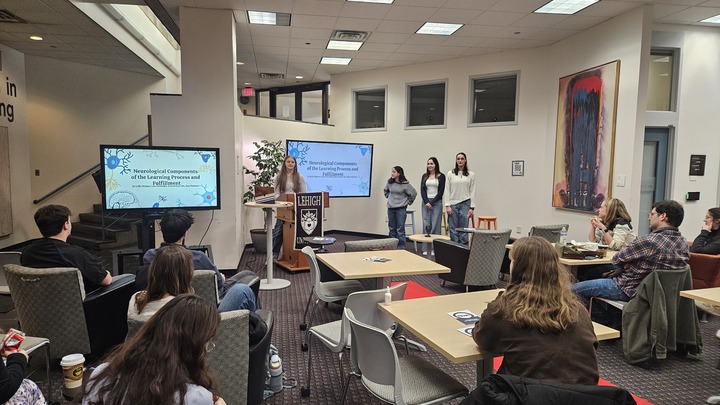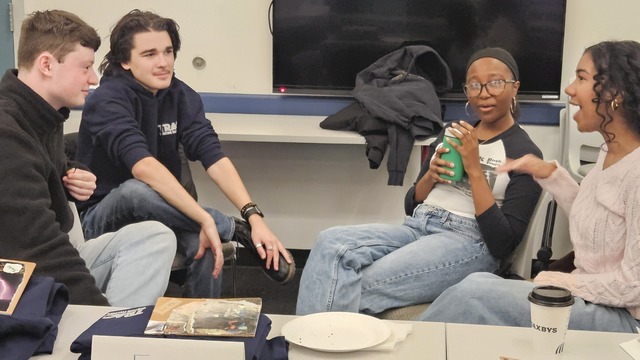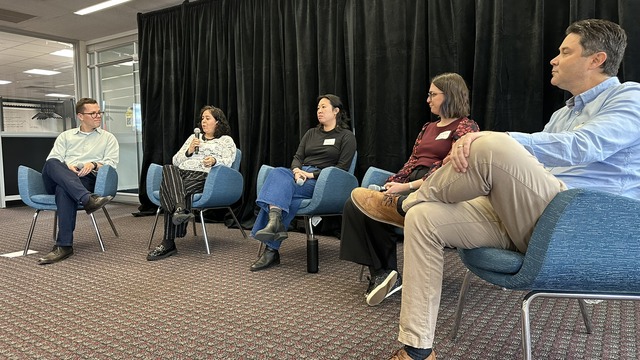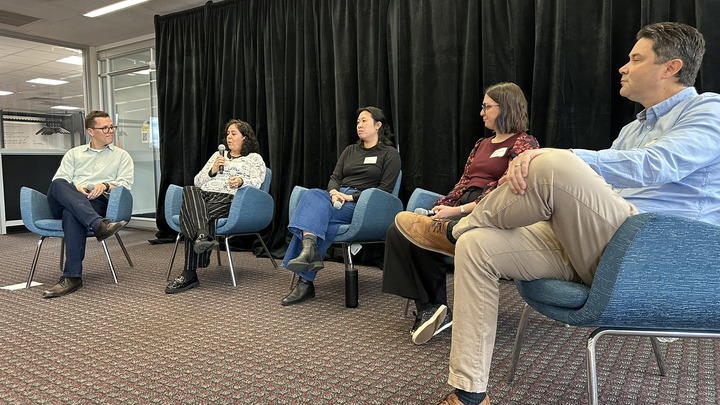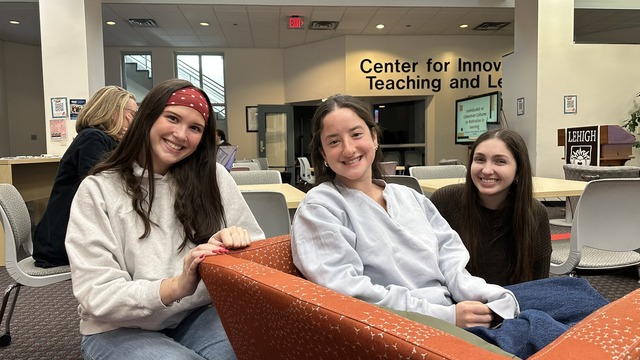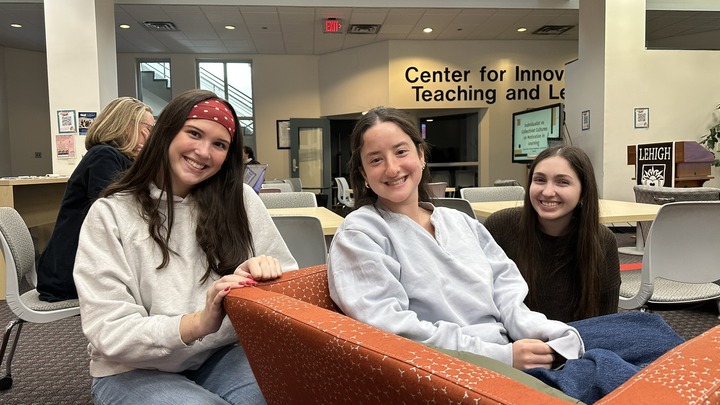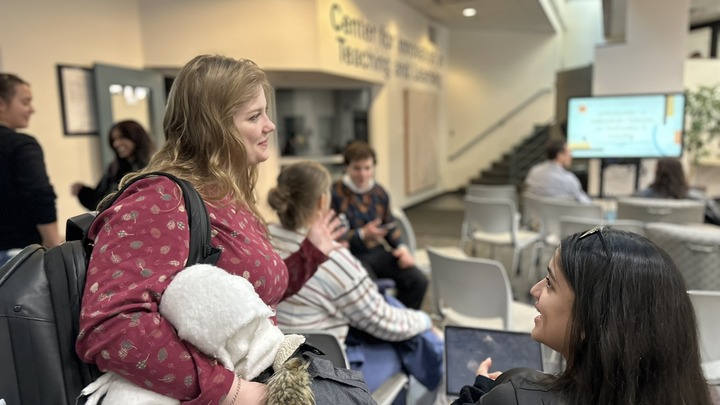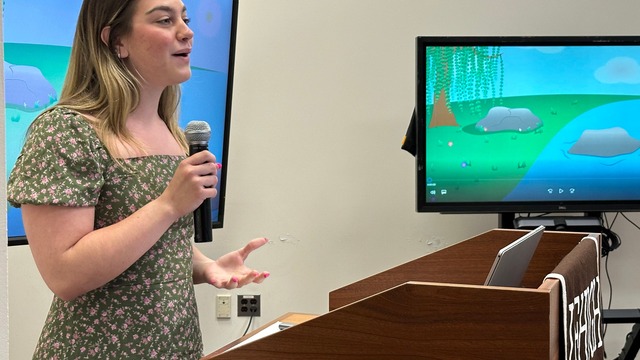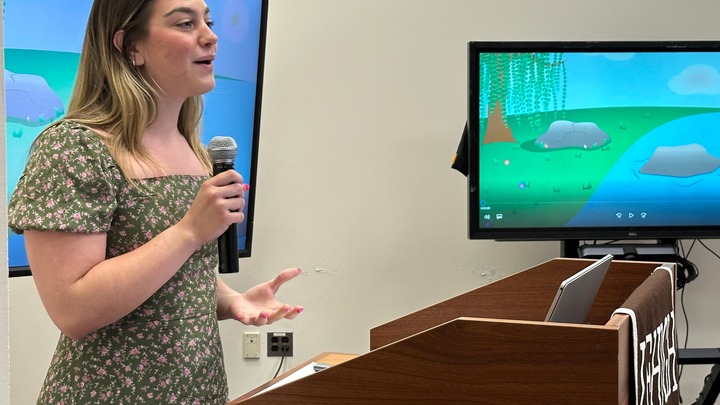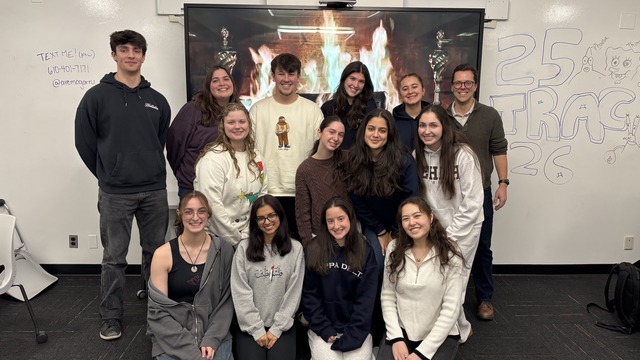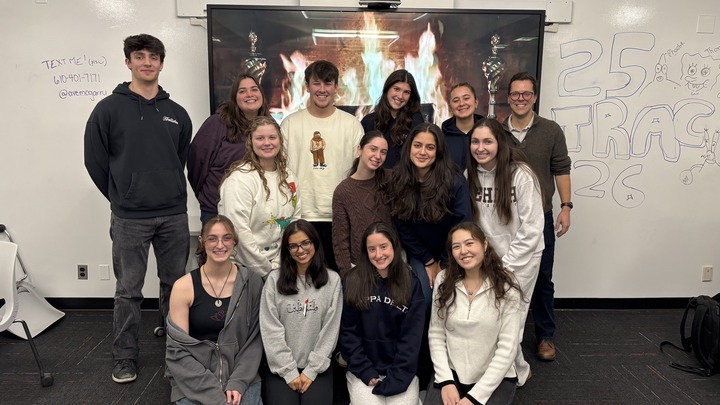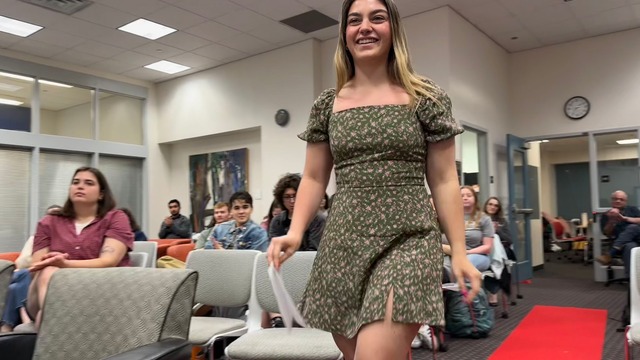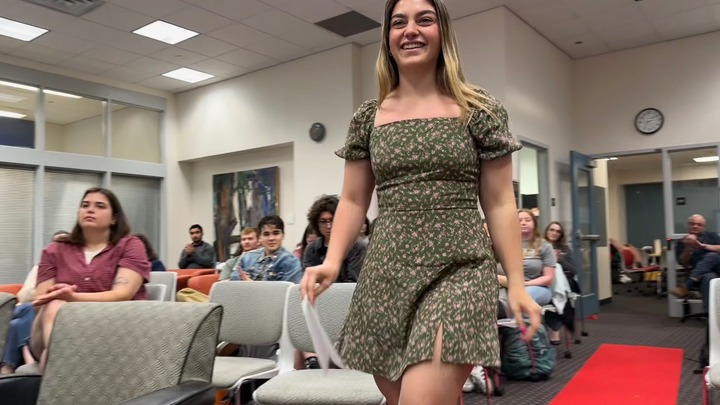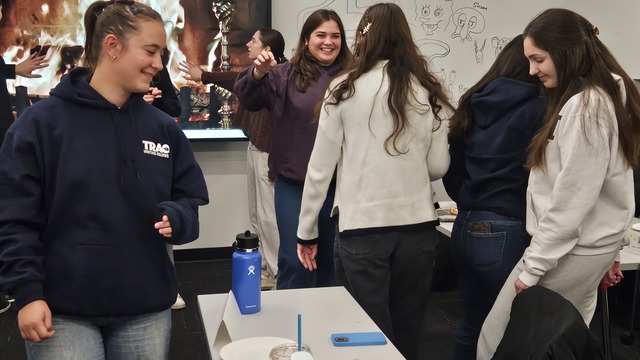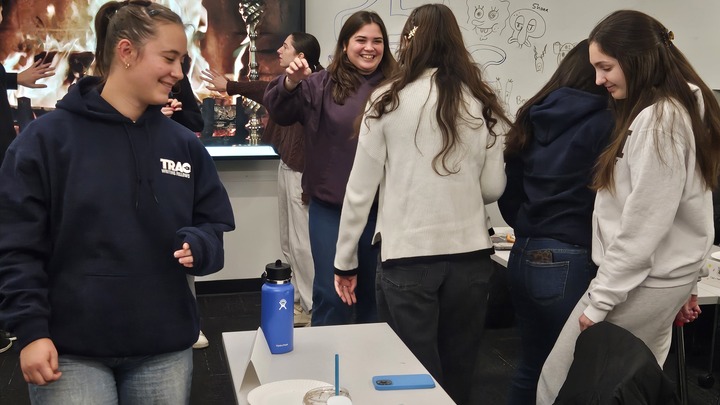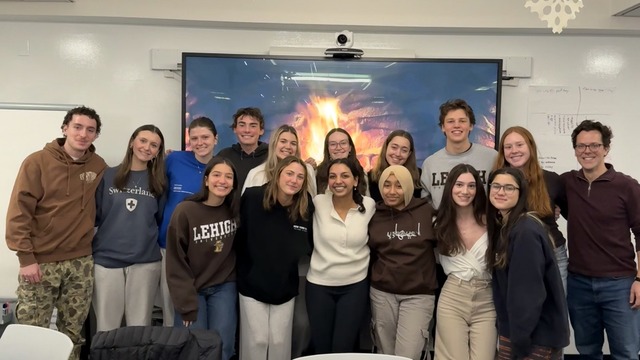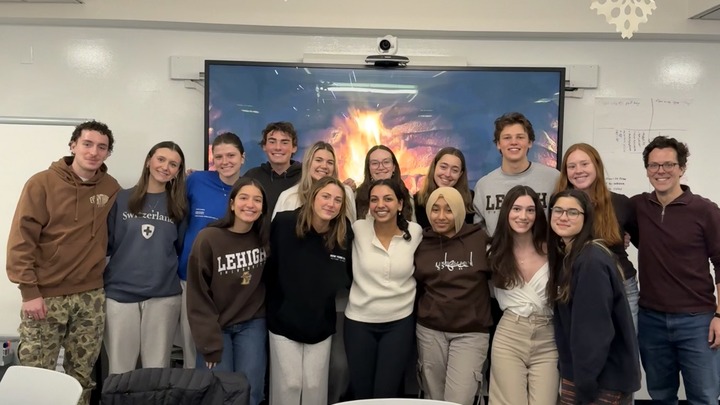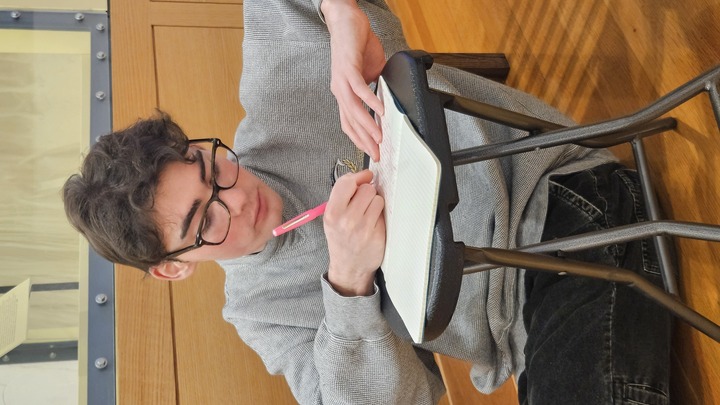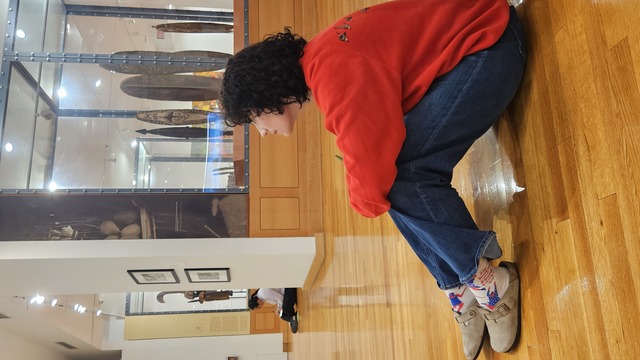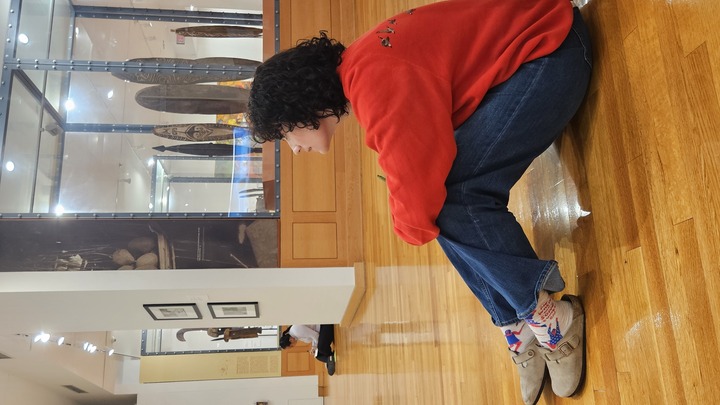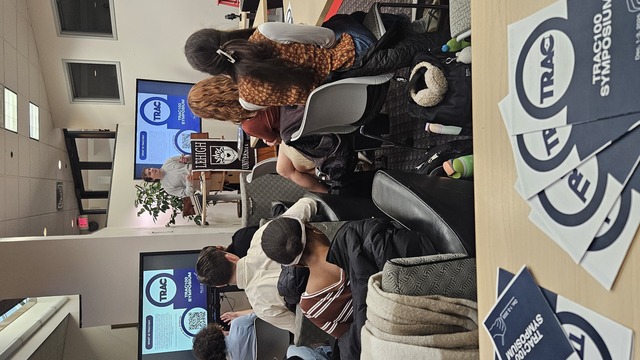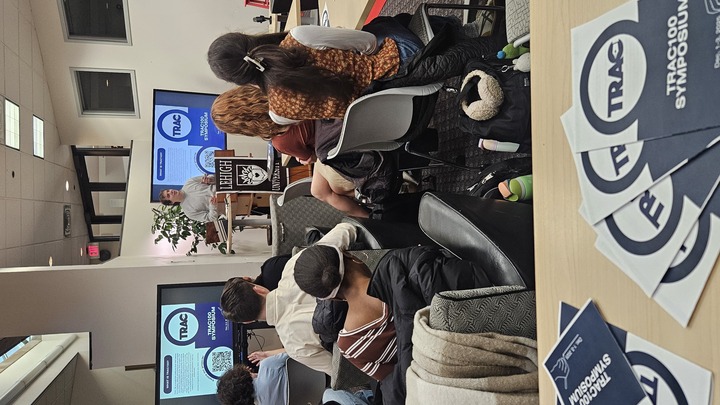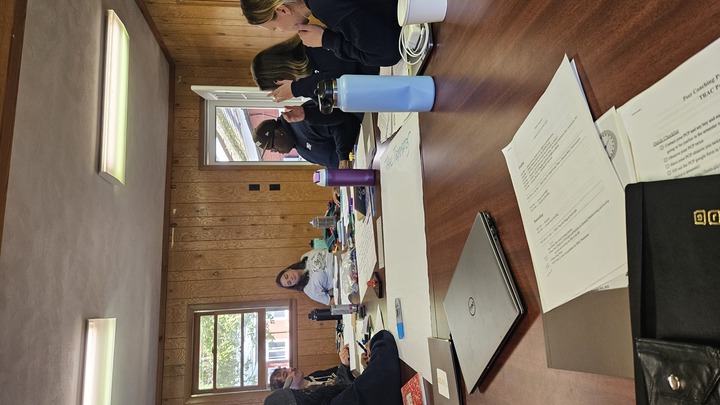TRAC nominations open
We invite Lehigh faculty, staff, and current fellows to nominate undergraduate students to join the TRAC Writing Fellows Program in the 2026–27 school year via this form! Nominations are due by the end of the day on Friday, February 13th, 2026. If you are a student: Ask someone to nominate you! Scroll for more information. Please note that we only recruit students who are currently first years (Class of 2029) or sophomores (Class of 2028). Questions? Contact Dr. Justin Greenlee, Director of Writing Across the Curriculum at Lehigh, at jgg223@lehigh.edu, tracfellows@lehigh.edu, or call 610-758-4932.
Writing Across the Curriculum (WAC) at Lehigh University is committed to promoting a campus-wide culture in which writing and communication in its many forms are central to learning in all disciplines. Based on the tried-and-true notion that collaboration among peers is one of the most effective methods of learning, WAC and the TRAC Writing Fellows Program create learning environments where inquiry and communication are vitally linked, restraints on learning imposed by traditional disciplinary boundaries are eased, and students and faculty are part of one vibrant intellectual community.
Foundations of Writing Across the Curriculum at Lehigh
- Writing is a vital mode of learning—promoting intellectual engagement, active learning, and critical thinking.
- When students improve as communicators, they become better not only at writing and speaking, but at reading and listening as well.
- Effective communication includes skills of explanation and persuasion, and also the willingness and ability to empathize, understand, collaborate, and consider new and opposing views.
- Writing to learn is central to the Lehigh experience.
- A successful Writing Across the Curriculum program prepares students to participate in a global culture and provides opportunities to acquire the motivation and skills to positively impact the world.
- Learning to write and writing to learn are lifelong processes. They are never accomplished completely. Not by anyone.
- All academic disciplines and their professions have specific conventions particular to knowledge, understanding, and communication. University faculty are experienced writers, experts in their fields, and best situated to help students understand these conventions.
- The teaching of writing can present distinct pedagogical and logistical challenges. It is our responsibility to provide faculty with assistance and support as needed. This may include help in: (1) articulating educational goals; and (2) discovering how writing can contribute to these goals in ways that are meaningful and appropriate.
- Writing Across the Curriculum and the TRAC Writing Fellows Program at Lehigh are transformative and do not call for addition so much as they invite modification of teaching practices.
- Partnership and collaboration are fundamental. Writing Across the Curriculum shares many goals with Lehigh faculty, branches of Library & Technology Services (LTS), and other programs and initiatives of the University at large.
- Writing Across the Curriculum involves faculty and student development, is connected in vital ways to curricula and departments, and is affected substantially by practices, policies, and decisions that transpire beyond LTS and the Center for Innovation in Teaching and Learning.
- The Director of Writing Across the Curriculum must actively seek guidance from across the university to propose changes and initiatives that are in the best interests of Lehigh faculty and students.
The TRAC Writing Fellows Program
The TRAC Writing Fellows Program is a central aspect of Writing Across the Curriculum at Lehigh. TRAC Fellows are high-achieving students who believe in the impact peer learning has on the university experience. TRAC Fellows typically conference with 10–15 students on 3–4 assignments per semester while focusing on the writing process and clear and effective communication. TRAC is a tight-knit, academically diverse community that consists of students from all four colleges that award undergraduate degrees. TRAC Fellows support each other and build relationships that extend well beyond their work in the program. Learn more.
We look forward to collaborating with you!
History
The TRAC Writing Fellows Program launched in the fall of 2008 as an initiative of Library & Technology Services to advance writing and communication instruction in courses across the curriculum at Lehigh. In the first semester of the 2008–09 pilot year, 15 TRAC Fellows worked with 10 members of the faculty. The successful pilot program paved the way for substantial growth in just a few years. As of Fall 2025, the program has a roster of 84 TRAC Fellows who serve approximately 1,000 students, 20 classes, and 20 faculty each semester. In seventeen years, the program has trained about 953 TRAC Fellows, assisted 193 faculty and instructors, TRACed 596 classes, and interacted with 23,385 students.
What We Do
TRAC Fellows serve as peer writing coaches who hold individual and small group conferences, read and respond with written feedback to works in progress, assist students conducting research, and act as resources for students using instructional technologies. Each fellow works with no more than 15 students. Large classes therefore require more than one fellow. Fellows do not grade student papers, nor do they play any other role in determining grades.
How Fellows are Trained
TRAC 100, The TRAC Writing Fellows Seminar, is a 4-credit course (HU, W, WRIT) that trains students from across disciplines to work as writing coaches. Students collaborate with peers in class on the development of effective conferencing strategies, habits, and best practices. Course facilitators and students explore how a TRAC conference is about listening to another writer; attending to what they wrote; affirming some of their instincts about what is strong or weak within a draft; and sharing experiences about the writing process. The course fosters student engagement in the writing and research process, teaches fellows to consult on the design of effective writing assignments, and practices communication between students, faculty, and staff.
Benefits for Students in TRACed Classes
By creating productive partnerships between highly trained writing coaches and faculty in the disciplines, the TRAC program helps students:
- improve the quality of their writing;
- have greater confidence as writers;
- use evidence and develop arguments;
- improve the organization of a draft;
- revisit and better understand a writing prompt;
- spend time on revision;
- deepen analyses;
- generate new ideas;
- develop their research skills; and
- see the strengths and weaknesses of a piece of writing.
Working with the fellows, students will practice habits that lead to better writing and communication skills. They will also learn strategies that are important in college, in their discipline(s), and in their careers after graduation.
Benefits for TRACing Faculty
A direct result of the TRAC program will be improvement in the quality of student writing. Faculty who value good writing will enjoy reading better student work. In the TRAC Fellows, faculty have a valuable resource for helping students with assignments that also require library and database research. Ultimately, faculty will benefit from interaction with students in their courses who are increasingly engaged, knowledgeable, and communicative.
Benefits for the University
With the help of TRAC Fellows, students will improve not only at writing and speaking, but at reading and listening as well. They will learn course content effectively—more deeply and more broadly—and in ways that are engaged and connected to their lives. Students will learn that effective communication includes not only skills of explanation and persuasion, but also the willingness and ability to empathize and understand, to collaborate, and to acknowledge and appreciate new, strange, and even opposing views. With the TRAC Fellows contributing to Writing Across the Curriculum, Lehigh will prepare students to participate in a global culture and acquire the skills and motivation to make the world a better place.
The pillars of TRAC are the values and skills of our fellows. The pillars support our community, writing courses, and recruitment of new fellows. A value encourages a skill (e.g., Empathy & Peer Support), a skill encourages a value, and one pillar leads to another. A description of values and skills as actions is at the base of each pillar.
I
Empathy & Peer Support
A fellow works to understand others and provides constructive support. They are aware of people's strengths and challenges, especially in academic settings. They practice patience, active listening, and the ability to give and receive feedback. They help peers develop and improve their writing while fostering an inclusive learning environment.
II
Intrinsic Motivation & Intellectual Curiosity
A fellow is curious about writing, technology, research, and communication. Their engagement with students is often motivated by a need to pursue knowledge beyond classroom requirements. They show a genuine desire to explore ideas outside of their comfort zone, ask thoughtful questions, and engage with new topics.
III
Creativity & Critical Thinking
A fellow offers original ideas and perspectives by thinking against boundaries and beyond expectations. They articulate their core beliefs while adjusting how they communicate with varied audiences. They consider different viewpoints, pause, and ask follow up questions. They share complex ideas in an accessible way. They embrace openness and vulnerability in writing and other creative outlets.
IV
Growth Mindset & Adaptability
A fellow develops a personal approach to writing, peer feedback, and problem-solving. They are devoted to self-reflection and academic growth. Their working habits match their personality and what they've learned from experience. They demonstrate flexibility in thinking, turn obstacles into opportunities, and find ease and enjoyment in the writing process. They analyze situations, approach challenges with care, and propose creative solutions.
V
Listening & Communication
A fellow listens to understand. They ask questions and give constructive criticism. They acknowledge that they work across disciplines, and are eager to learn the conventions of writing in another field. They communicate thoughtfully, confidently, and with humility. They take time to develop and explain their ideas. They engage in meaningful dialogue, are open to persuasion, and value others’ input and perspectives.
VI
Gratitude & Mindfulness
A fellow is grateful for time to write and learn with their peers. They are attentive to their thoughts and emotions, not only for their own well being, but also to communicate considerately with people around them. This thoughtfulness is enhanced by the practice of mindfulness, which makes them more present in a situation and able to approach interactions calmly. They reflect on themselves. They revel in the act of slowing down in academic and personal spheres.
Faculty Responsibilities
Meet with your assigned fellow(s) early in the semester
You should schedule a meeting with your assigned fellow(s) in the first or second week of the semester. TRAC Fellow contracts with Library & Technology Services begin on the first day of the semester and end on the last day. In that meeting, you can share a syllabus, instructions for writing assignments, rubrics, and relevant course policies (e.g., whether or how your students are permitted to use artificial intelligence). Your fellow(s) may also ask to be added to your CourseSite in the “Visitor” role so they can study your course design and learning objectives. (N.b.: Fellows cannot view Assignments, grades on individual assignments, or the Gradebook in the Visitor role. See "Course Site Roles and Permissions Explained.")
Set a timeline to aid the TRACing process
To facilitate a robust revision process, faculty who work with TRAC Fellows agree to: (1) set a due date for all drafts to be submitted; (2) which opens a conferencing window of 7–10 days when a student can meet with their fellow; and (3) tell their students that drafts should be sent to their fellow 48 hours before a conference takes place. This timeline allows the fellow to provide written feedback on drafts and hold individual, in person conferences to help students produce their best work and improve as writers.
Require conferences with fellows
Mandatory conferences ensure that fellows have opportunities to benefit your students and the course.
Remind your students to fill out the TRAC Feedback Survey after every conference
A fellow will ask a student to fill out a feedback survey after each writing conference. Many questions include a Likert scale: “I felt comfortable working with my TRAC fellow.” “It was easy to schedule a TRAC conference.” “The conference was productive in helping me improve my assignment.” “I am glad that my assignment incorporated the TRAC process.” One question asks about the perceived benefits of a conference: “The TRAC process helped me to develop the following related to my writing assignment. Please check all that apply.” (The most common responses during the 2024–25 school year were: “Improved language,” “Stronger argument,” “Confidence in my writing ability,” “Better organization,” “Clearer writing,” and “Revision strategies.”) Please remind and encourage your students at multiple points in the semester to fill out the TRAC Feedback Survey after each writing conference.
How to Request TRAC Fellows for your Courses
Faculty requests for TRAC Fellows in Spring 2026 courses must be submitted by November 21st, 2025; for Fall 2026 courses, by April 17th, 2026. The faculty request form for Spring 2026 will be posted here in early November. You can also request fellows by reaching out to Dr. Justin Greenlee, the Director of Writing Across the Curriculum, via email at jgg223@lehigh.edu or tracfellows@lehigh.edu.
What can the TRAC Writing Fellows do for you?
Fellows provide support in several ways.
- They help you to see your own work from a fresh perspective and stimulate ideas about revision by offering written commentary on drafts of your writing assignments.
- They provide an opportunity for sustained, focused, and detailed conversation about your writing through individual or group conferences.
- Though the TRAC Fellows' main area of expertise is the writing process, they also provide assistance with library and database research and the use of instructional technology.
What will TRAC Fellows not do for you?
TRAC Fellows do not:
- Grade your assignments or speculate about grades your professor might award.
- “Fix” or line edit your writing.
- Focus on grammar or spelling.
- Do anything that interferes with peer to peer collaboration and your engagement in the revision process.
What are your responsibilities when working with TRAC Fellows?
Your professor has chosen to work with TRAC because writing is an important part of your course. This arrangement constitutes a commitment to the program and, therefore, working with the TRAC Fellows is a course requirement.
Accordingly, your responsibilities are to:
- Follow the professor’s instruction regarding writing.
- Make certain that drafts are submitted when they are due.
- Sign up for 3–4 conferences related to your drafts at various points in the semester.
- Read the TRAC Fellows’ written feedback on your drafts carefully and take it into consideration in your revision process.
- Bring the draft with the TRAC Fellow’s feedback to the conference.
- Come to the conference on time with specific plans and questions, ready to engage in a focused and detailed discussion about your writing.
- Fill out the TRAC Feedback Survey after each conference.
What happens during a conference with a TRAC Fellow?
The conference is your opportunity to formulate a plan for revising your draft in preparation for final submission to your professor. During the conference, the TRAC Fellow may question—and even challenge—specific aspects of your writing in order to stimulate your thinking and generate productive dialogue. The TRAC Fellow will be helpful, but it is your responsibility to make the most of the conference and do your best to leave the session with a clear plan for revision.
What if you are already a good writer who doesn’t need extra help?
All Lehigh students can benefit from working with TRAC Fellows. Writing is a mode of learning that is never completed, and your professional success depends to a great extent upon lifelong development of discipline-specific writing skills. Everyone can benefit from the process of getting feedback and engaging in dialogue about their writing with smart and helpful readers.
How to Apply
Nominations
The TRAC Writing Fellows Program is open to undergraduate students from all academic majors who will begin their sophomore or junior year at Lehigh as of Fall 2026. We invite faculty, staff, and current TRAC Fellows to nominate students beginning Thursday, November 6th, 2025 and until Friday, February 13th, 2026 via this form. We will reach out to nominees directly to submit application materials once all nominations are collected. Nominated students will be exempt, by virtue of your nomination, from the letter of recommendation (1) required of non-nominated applicants. We will also hold special information sessions for nominees on Thursday, February 19th, Wednesday, March 4th, and Wednesday, March 18th. If you would like to seek a nomination from a member of our current student Leadership Team, please email tracfellows@lehigh; explain, in brief, your interest in TRAC and reasons for seeking a nomination (100 words or less); and we will return your message.
Applications
To apply:
- Complete our TRAC 2026–27 Application Form. (You need to be nominated by Lehigh faculty, staff, or a current TRAC Fellow to apply --OR-- submit a letter of recommendation as part of your application packet). The nomination form will be posted here in early November 2025. We will send out invitations to apply and a link to the Application Form based on nominations on Tuesday, February 17th, 2026.)
- Fill out all the fields in the application form, including “Upload a single PDF with all your application materials.” That PDF should include:
- (1) a cover page with your name, your current school year (either "First Year" or "Sophomore"), undergraduate college affiliation (e.g., "College of Arts & Sciences" or "College of Business"), and major/ minor/ area(s) of interest if undeclared;
- (2) a personal statement that outlines (a) why you want to be a TRAC Fellow, (b) what you think makes you unique in comparison to other applicants, and (c) what you would bring to the TRAC Writing Fellows Program;
- (3) 2 writing samples from work completed at Lehigh or as recently as possible (each writing sample should be no more than 5 pages long; you may excerpt from a longer work);
- (4) a résumé (optional—if you have one, or provide a list of activities that you are involved in on and off campus); and
- (5) an unofficial Lehigh transcript.
All application materials are accepted in the spring semester and must be received by Friday, March 20th, 2026.
Partial applications will not be eligible for consideration.
You may direct any questions you may have to jgg223@lehigh.edu or tracfellows@lehigh.edu.
Qualifications
- TRAC is open to undergraduate students from all academic majors who will begin their sophomore or junior year at Lehigh as of Fall 2026.
- We value empathy, intrinsic motivation, creativity, growth mindset, listening, and gratitude.
- Exceptional skills in writing, technology, research, communication, peer support, intellectual curiosity, critical thinking, adaptability, and mindfulness.
What Being a Fellow Entails
TRAC Fellows serve as peer writing tutors who read and respond with written feedback to drafts of student work in progress, hold individual and small-group draft conferences, and act as resources for students conducting research and using instructional technologies. Each fellow works with 10–15 students on 3–4 assignments per semester. Fellows consult with faculty on the use of new instructional technologies, assignment design, and effective use of writing-to-learn activities. All new Fellows enroll in TRAC 100, The TRAC Fellows Seminar, as a requirement of accepting a fellowship. This 4-credit seminar takes place in the first fall after your acceptance and trains students to work as peer writing coaches. Fellows also attend bi-weekly staff meetings, participate in student-led workshops, and participate in team-building and program assessment activities.
Rewards of Being a Fellow
- Hone your writing skills: Develop your writing process.
- Peer collaboration: Work as a coach and facilitator to assist others with their writing.
- New and lasting friendships: TRAC Fellows support each other and build relationships that extend well beyond their work in the program.
- Collaborate with faculty: Working closely with professors within and outside your discipline provides a rare opportunity for you to reinforce disciplinary knowledge and skills and broaden your academic experience.
- All positions are paid: TRAC Fellows are paid a bi-weekly stipend. Pay increases every year. Fellows remain in the program as long as they remain in good academic standing.
Attend an Information Session
Attend one of our upcoming TRAC information sessions if you are interested in applying but want to know more!
- Information Session 1: Thursday, February 19th, 12:10pm-1pm, STEPS 101;
- Information Session 2: Wednesday, March 4th, 6pm-7pm in Neville 002;
- Meet and Greet” between prospective fellows and current TRAC Fellows with pizza: Wednesday, March 18th, CITL Commons (3rd floor of Fairchild-Martindale Library).
Words that TRAC Fellows associate with our writing program: adaptability, affirm, agency, carnival of learning, co-, coach, cognitive presence, collaboration, contemplation, creativity, curiosity, development, dialog, empathy, experimental/experimentation, feedback, fellows, freedom, gratitude, growth/growth mindset, holistic, inquiry-based, intellectual curiosity, interdisciplinary, intrinsic motivation, kindness, listen, meaningful, metacognition, mutual aid, pedagogy, peer/peer education/peer learning/peer-to-peer learning, personal growth, play, positive psychology, present/presence, process, reflection, risk-taking, self-assessment, self-directed, self-reflection, skills, student-centered, student-led, well being, writing.
Nominate Undergraduate Students for the TRAC Program
The TRAC Fellows Program owes much of its success to the support of Lehigh faculty, staff, and current fellows. Each spring semester, we interview a new class of associates. You can help us grow by nominating your best student-writers to join TRAC.
Who are your students who have shown special abilities in writing, oral communication, leadership, organization, and reliability? Please nominate them for TRAC!
You are able to submit the Google Form multiple times if you would like to nominate several student-writers. You can also email tracfellows@lehigh.edu and attach a Doc or spreadsheet if you would like to nominate a number of students at once.
Nominations are due by the end of the day on Friday, February 13th, 2026.
Questions? Contact Dr. Justin Greenlee, Director of Writing Across the Curriculum at Lehigh, at jgg223@lehigh.edu, tracfellows@lehigh.edu, or call 610-758-4932.
I am incredibly grateful to be a part of TRAC because it has allowed me to meet new friends and continue to explore reading and writing while helping other students succeed. — Marissa (’25), Biology
One reason I love TRAC is its ability to branch in all sorts of different aspects and subject matters. From learning about business proposals and engineering grand challenges, to doing yoga and meditating. The more people I get to meet through this program the more grateful I am that I get to be a part of something that's so integrated in group passion. — Kaitlyn (’26), Health, Medicine, & Society and Psychology
The TRAC program has been such a unique part of my Lehigh experience. I love having the opportunity to interact with other students outside of my majors and helping them become more confident in their writing! — Greer (’27), Health, Medicine, & Society and Supply Chain Management
The TRAC program definitely stands out as something I love at Lehigh because of the amazing people I've met. I love being able to have an outlet for creative expression and be a part of a student-run organization. TRAC has been one of the best parts of my Lehigh experience! — Natalie (’26), Economics
Writing is a hobby-turned-passion of mine, and I am so happy to be a part of the ever growing and awesome community that is TRAC! — Ascha (’28), Psychology
I love being a part of TRAC because I get to meet people with diverse interests and studies. Every day I learn something new, for my peers are always opening my eyes to a world of new perspectives and joys in life. — Chloe (’27), Graphic Design
I joined TRAC because not only is it a way for me to continue working on my own writing and communication skills, but it also allows for me to collaborate with students outside my discipline and aid others with their writing in whatever way I can. — Hanna (’26), Civil Engineering
TRAC has been an amazing opportunity to build community and make an impact on Lehigh's campus. In the past three years in TRAC I have met such a motivated group of people, helped over 200 students with various assignments, and found the value in mindfulness. I am so grateful! — Julia (’25), Journalism and Political Science
My favorite part about the TRAC program has been working with students across interdisciplinary topics. It's very rewarding being able to help students grow as writers while also growing my own knowledge. I've also met wonderful people through the TRAC program, both fellows and students I've worked with. — Sonia (’25), Bioengineering
I love being a TRAC Fellow because I enjoy helping others reach their writing goals. Being a part of this program has been extremely rewarding so far! — Faith (’28), Accounting
Becoming a TRAC Fellow has been one of the most transformative endeavours I have taken part in. Meeting with students, bonding with the other fellows, and advancing the values of TRAC have led me to a place of devout interest in lifelong learning and mindfulness. — Ella (’25), Cognitive Science, Economics, and Molecular Biology
I love TRAC because it has given me the freedom to express myself unapologetically and explore my creativity in many ways. — Shoaa (’28), Psychology
Being a TRAC Fellow has been a rewarding experience where I have met some of the most hardworking and committed students on campus. From conferencing with a student or speaking with other fellows at staff meetings, I feel inspired by peer-to-peer learning and the TRAC community. — Charlotte (’25), Global Studies and Spanish
I love TRAC for the people I have met and the opportunities it has provided me. I have cultivated so many meaningful relationships that now extend outside of the organization. TRAC has sparked a greater passion for learning and education within me. I am so proud to be a TRAC fellow! — Sarah (’26), Biology
I am grateful to be a part of the TRAC community because it serves as a space to be creative, write, and work alongside others to increase their passion for writing. I appreciate meeting so many new friends through this program! — Natalie (’26), Community and Global Health and Health, Medicine, & Society
Being a part of TRAC has given me the opportunity to be a part of something bigger than myself here at Lehigh. Through TRAC, I feel that I am truly able to make a difference in how students, professors, and administration conceptualize what education should look like. I am so thankful for the TRAC program and all the people and opportunities it has introduced me to. — Collette (’25), Political Science
